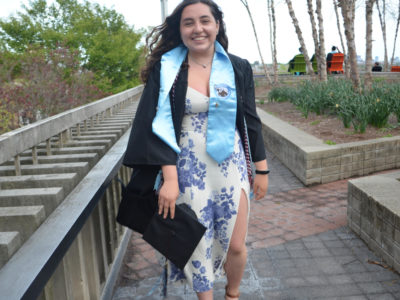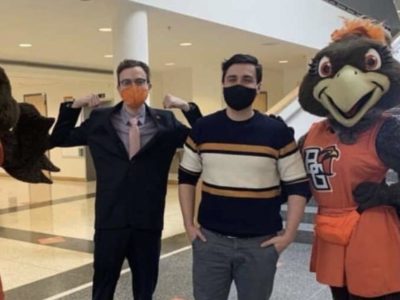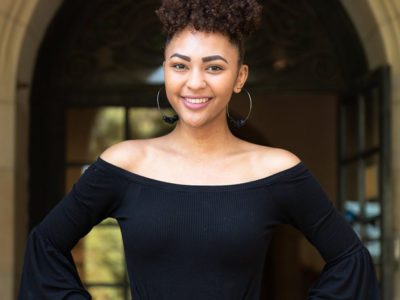For any college student interested in politics or leadership, student government holds the key to success. Involvement in your university’s student government organization will surely help you on your way to greatness. However, being a leader means you have a whole lot of people depending on you. Sarah Wiener, President of Tufts Community Union (TCU) at Tufts University, talks all about the challenges a student leader must overcome.
Check out Sarah’s story below!
Q&A
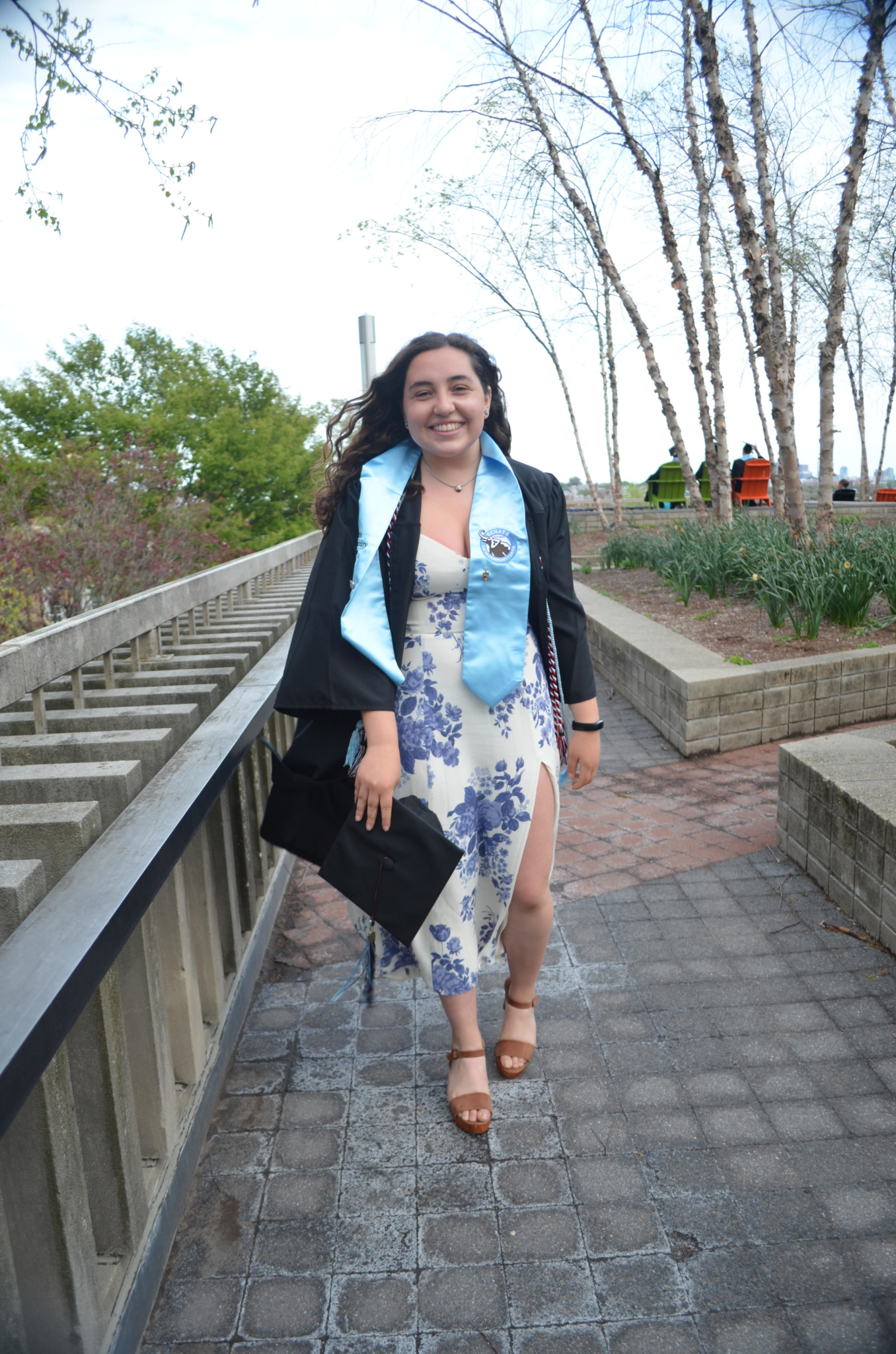
Q: What inspired you to run for office?
SW: I didn’t know I was going to run until the final hour, I thought surely there were other students more fit for the job and that I could do good for my community in many other positions with a less flashy title. Ultimately, I decided I was prepared to stand up for students when our interests were not given adequate consideration. I also felt passionately that student government had not done enough historically at Tufts to genuinely gage student sentiment and wanted to hold town halls, conduct surveys, and do more outreach than Senate had done previously to make our leadership legitimate and meaningful. I felt that since our voter turnout for Senate elections was always so low, and that students have so much going on giving back to their various corners of the community in addition to being in school, that it was our responsibility to engage students and uplift their concerns, particularly students that are institutionally overlooked, underrepresented, and under-supported by primarily white institutions like Tufts University and the Tufts Community Union Senate.
Q: What was your experience with campaigning like?
SW: Stressful! For over a month prior to the actual campaign I organized a core team virtually, worked with a friend to design campaign materials, prepared campaign events and outreach waves, and did outreach to individuals. The week of the actual campaign felt like a fever dream of holding events, tracking my social media following, handling mistakes, questioning if I should be campaigning or if I was qualified for the position, and thinking I had no shot of winning. I think doing the whole campaign from home, remotely, was difficult because my core campaign team only got to meet together a handful of times. In between the campaign events I was alone second guessing myself and trying to stay busy.
Q: Where did you start in student government?
SW: I started student government on a whim as a first-year at Tufts. I had done student council in high school and wanted to understand more about Tufts as an institution, meet people in my community that had different interests and experiences than I, and give back to the community I was getting so much from. I nearly quit after my first year because I felt that for the number of hours I was putting in, I didn’t feel like much was coming of the work we were doing and that I could support my community better in other ways. I ultimately decided to commit more instead of less and I think our advocacy did become more impactful and influential.

Q: What is the daily life of a student government official like?
SW: Being President became an identity for me in that it wasn’t a job with defined limitations of when I was “off the clock,” but instead it was as much a part of my day everyday as was eating or sleeping. I was the person that caught the responsibilities others dropped or couldn’t follow through on, the point person for administrators and faculty that needed feedback or consultation with students, a walking encyclopedia for students who had questions about where to go with their concerns about Tufts, and a secretary that catalogued every need and concern that students both on and off of Senate came to me with. On any given day I would respond to emails asking for student voice or initiate conversations with decision makers that I felt were acting without regard to student voice; meet with Deans, infectious disease doctors, the University President, or other office directors; meet with other senators or student activists; write meeting agendas and project timelines; and respond to any given crisis of the day.
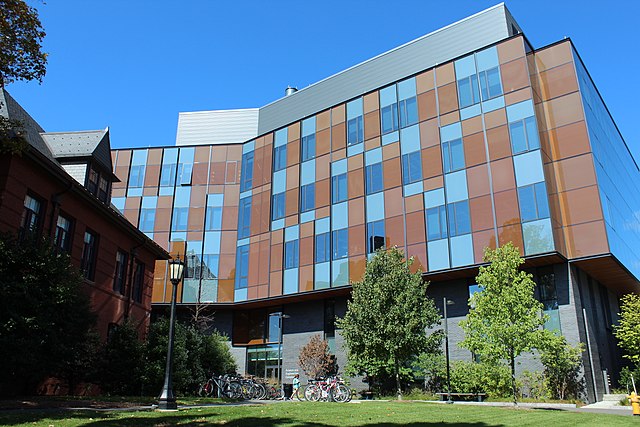
Q: What were your goals for Tufts?
SW: Broadly, my goals going into the year were to increase genuine and accurate student representation in university decisions both long and short term. Specifically, I wanted Senate to do more research and outreach to students to better understand their needs, for a student to have a voting position on the Board of Trustees, and for administrators to take the calls of student activist groups that were demanding for Tufts to progress as a just and anti-racist institution seriously instead of labeling them unreasonable, idealistic, or radicals.
Q: How did you follow through on those goals?
SW: When I campaigned to be President, we thought classes would be in person at some point this year. That is to say, my goals for what Senate could do for Tufts shifted because student need shifted to dealing with the pandemic, the effects of the Trump presidency on students (like with Betsy DeVos’s Title IX changes and threats to international students’ visas), and supporting student calls for change and critical self-reflection of university leadership following police murders (of course as only some instances in a pattern of racist violence and anti-Blackness specifically) the summer prior.
I did end up initiating two large campus surveys that made advocacy I did on the Education Policy Committee effective in changing Tufts’ academic policy for three consecutive semesters. I used the survey’s findings to begin meetings with campus health professionals who provided weekly context for our COVID dashboard, which gave students the tools they needed to inform their behavior under COVID safety guidelines. I met with the Chief of the Tufts University Police Department to work on persuading him to demilitarize TUPD and connected him and relevant committees with other Black students who were already advocating for police reform. I wrote a resolution and worked with student leaders to advocate for student representation and voting power on the Board of Trustees.
I met with many administrators, the Board of Trustees, and students to discuss how important it was to take calls for racial justice in context of the Israel-Palestine debate seriously when campus activists began mobilizing in the Spring. One of the projects I felt was most important to my leadership was beginning the year doing a lot of research on Senate’s history advocating for Student needs, advancing anti-racist work, and working with or against the administration. This research informed a lot of the advocacy tactics I ultimately employed and helped frame a conversation of critical self-reflection, effective advocacy, and racial consciousness on the Senate body.
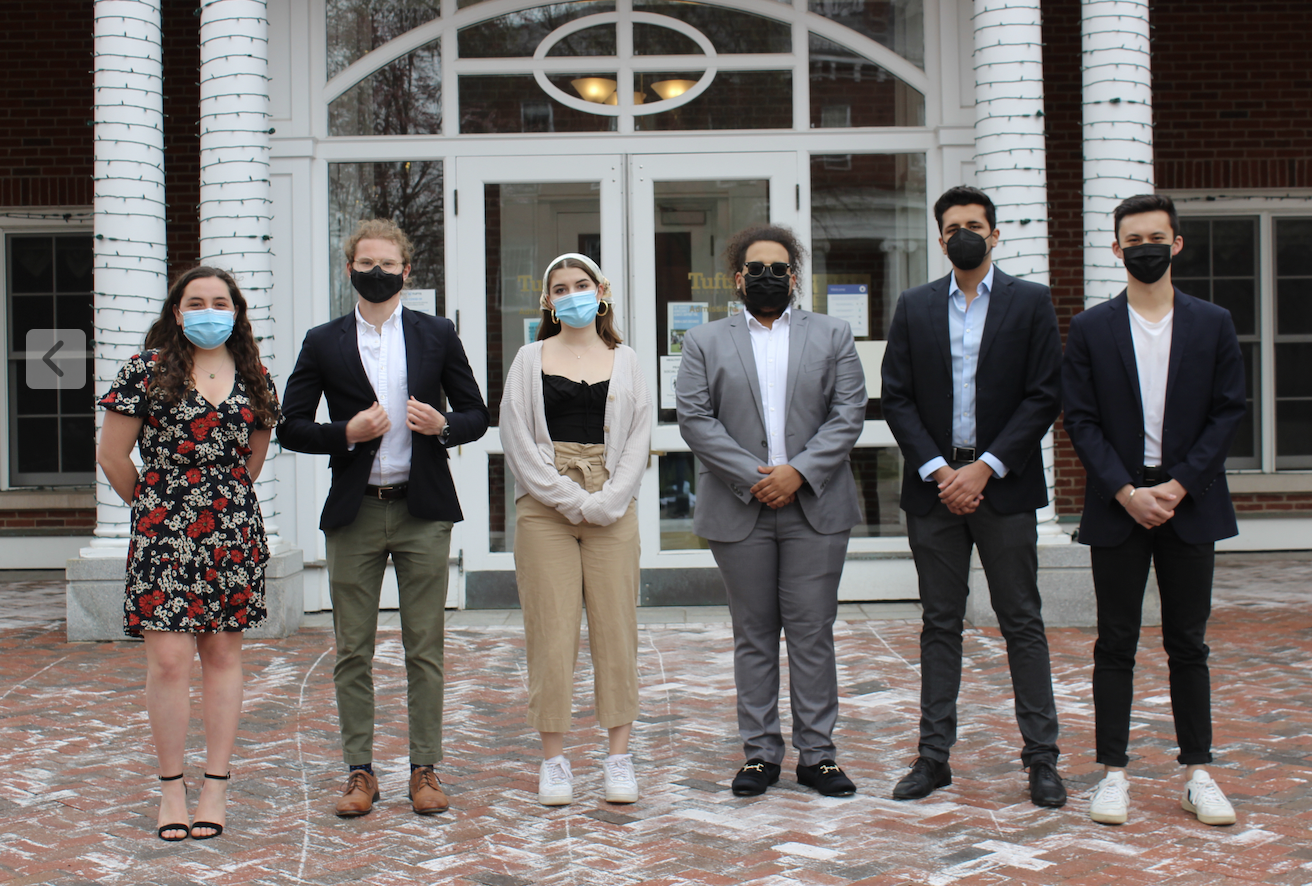
Q: If you could be remembered for one accomplishment during your time as President at Tufts, what would that be?
SW: I have two accomplishments that felt most significant to me during my time at Tufts. The first, was that at the start of the year I allowed my anti-Black implicit bias to influence one of the committee placements I and other Executive Board members were in charge of. I worked with the students I wronged, educated myself, and improved my ally-ship to the extent that by the end of the year I got to lead a workshop on anti-Blackness on Senate with the student that I wronged. That story is a testament to the incredible strength and leadership of the student I got to work with, and personally repairing that relationship felt as significant to me as almost anything else I did as President.
Second, I led a constitutionally mandated hearing procedure for student activists who felt that they were wronged by another branch of student government in their pro-Palestine advocacy. I worked with the rest of our Executive Board to ensure the hearing could be carried out safely, support students who were being doxed, and worked with Zionist and anti-Zionist activists to create a curriculum to discuss the issue in the future with Senate. At the end of the year, when there was pressure both internally at Tufts and externally to stop the hearing and close the last route of recourse to students, I acted under the principle of student activism and transparency that I had promised in my campaign and did not bend to pressure. In the coming years the curriculum we developed will be piloted with student government as a part of a new dialogue center at Tufts.
Q: Do you aspire to run for any political positions after graduation?
SW: Not for the time being, there is much more learning to do and I think I may like working behind the scenes more.
Q: What is your ultimate goal after you graduate?
SW: I hope to get a full time job in a Congressman’s office or think tank working on progressive policy research, analysis, and lobbying. I am primarily interested in better funding K-12 education, making higher education more accessible, and overturning Citizens United to end the influence of Super PACs and Dark Money in elections and policy making. I’m passionate about ethical, accountable governance.
How To Run For Office:
In order to run for Tufts University TCU, you must follow the intricate rules and regulations detailed in several documents on the TCU website. ECOM, or the Elections Commissions, runs all student government elections at Tufts. They have posted several documents on the TCU website entailing rules for campaigning alongside the number of signatures you have to get!
Once you have your completed petition forms, you must attend the Candidates Meeting, which will be announced by ECOM. Then, you may begin campaigning. You are also required to attend the Candidate Forum, which will also be announced at the informational meeting, as well. More information can be found on the TCU website.
How To Connect With Sarah Wiener:
Email: [email protected]
Instagram: @winningwiener

